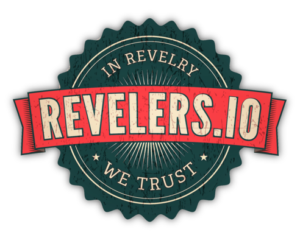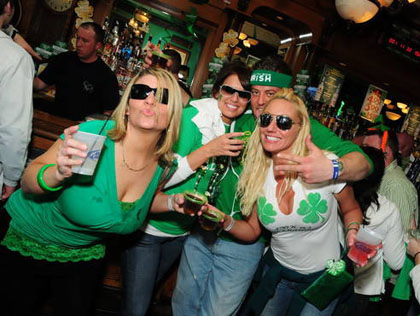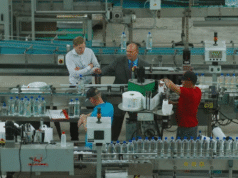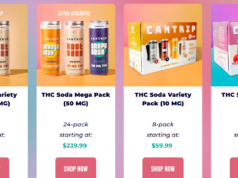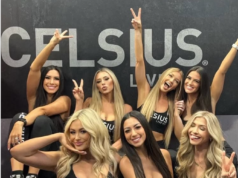Sweet Home Chicago
Local distilleries around the Windy City have captured a growing audience.
At Chicago’s Hotel EMC2, director of food and beverage Rebecca Royster is confronted with a constant procession of out-of-town guests with the same desire. “They want me to serve something they haven’t seen before,” she says. “And preferably, they’d like an artisanal product that’s made in Chicago and says something about the place.” Fortunately, Royster has a lot to show them. Many of the cocktails on EMC2’s beverage list are made with local brands like CH, Koval, and Journeyman. Her Piquant Martini ($14) features CH gin, Montanaro vermouth (from Italy), caper leaf, and a touch of extra virgin olive oil.
Such a menu would have been impossible just fifteen years ago, when there wasn’t a single distillery in the state of Illinois. Today there are around 30, mostly clustered in and around Chicago, and plenty more are in the planning stages. Once known for its loyalty to storied brands like Jim Beam and Smirnoff, the Windy City has embraced new names with a passion. Millennials crowd distillery tasting rooms on weekends and fill the aisles at the biggest retail chains, including the 38-store Binny’s Beverage Depot, which has made a point of stocking virtually every spirit produced in the state. “The quality of these local products is excellent, and our customers recognize that,” says Kari Mongold, general manager of the five-store Otter Creek Wine & Spirits in suburban Chicago, which stocks names like North Shore, Chicago Distilling, and Blaum Bros. Distilling.
Like many craft distillers nationwide, Chicago’s producers are still working to find distribution and an audience beyond their home marketplace. Some are selling to just a handful of states, while others depend on their own bars for a large chunk of their revenue. Nearly all would like to emulate the superstar of the Chicago pack, Koval Distillery, which opened on the city’s north side a decade ago with the nontraditional belief that people wanted their spirits produced not from corn, but from organic grains such as oats and millet.
Founded in 2008, Koval was Chicago’s first distillery since before Prohibition. It has flourished, distributing in 47 states and much of the rest of the world, including Canada, Europe, Asia, Australia, and South Africa. “We’re working on South America this year,” says president and co-founder Sonat Birnecker Hart, who was a professor of Jewish cultural history before she and her husband Robert Birnecker, also a former academic, jumped into the business.

Birnecker Hart credits some of her firm’s success to timing. “We were on the scene early,” she says. “And we didn’t bother with a restaurant or bar. From the outset, we were focused on selling around the world, as both my husband and I have international backgrounds.”
The couple also decided to pursue their own niches, and for Koval—which means “black sheep” in Yiddish—that has centered on alternative grains. The company’s oat whiskey and millet whiskey, each retailing at $45 a 750-ml., both contain 100% of those grains in their mashbills, and Koval Bourbon uses millet as a secondary grain. “Nobody else does 100% millet, and we were the only ones with a Bourbon mashbill with millet,” Birnecker Hart says. The company continues to experiment, with plans to introduce a whiskey distilled from nearby brewer Goose Island’s Matilda Belgian pale ale soon.
A year ago, Illinois reframed its definition of craft distilling to allow 100,000 gallons of annual production, up from 35,000 gallons previously. Koval may soon test that limit: It produced 70,000 gallons in 2017 and is growing at a 15% clip. It’s now set to expand its plant from the current 11,000 square feet to nearly 50,000 square feet, to be filled with new stills and fermenters, as well as a second bottling line.
At the opposite end of the spectrum is tiny Copper Fiddle Distillery in the northern Chicago suburb of Lake Zurich. Copper Fiddle was founded in 2012 by former golf pro Fred Robinson and his business partner and neighbor José Hernandez, an architect. They set up in an old warehouse with a single 13-gallon still and less than $200,000 in capital. The distillery operates on a small scale, and sold 600 cases last year, all of it in Illinois. To hype the business, Copper Fiddle hires bands to perform in the tasting room on weekends, entertaining as many as 80 visitors at a time.
Robinson is trying to forge a distinctive path for Copper Fiddle. His lineup currently features three gins, two rums, a Bourbon whiskey, and no vodka. “It makes us unique,” says Robinson. “When we were getting started, I noticed the vodka aisle at our local Binny’s was about half a mile long. The gin section you could throw your arms around.” The company’s Fyren Gin ($45 a 750-ml.) features classic gin botanicals but also includes a roasted serrano pepper that’s inserted directly into each bottle.

Suburban Stars
Though Koval may have been the first distillery in the Windy City since Prohibition, the true godfather of Chicago-area distilling is North Shore Distillery, which opened in 2004 outside the city limits in the northern suburb of Lake Bluff. Founded by former chemical engineer Derek Kassebaum and his wife Sonja, an attorney, North Shore was the first craft distiller in Illinois, introduced at a time when there were just 60 craft players nationwide. The couple developed their business by holding tastings at supermarkets and bars every weekend, and today they distribute to half a dozen states.
“We’re happy being a regional player,” says Derek. “We never set out to be really big—that wasn’t the lifestyle we wanted.” Among North Shore’s esoteric offerings are Sirène Absinthe Verte ($60 a 750-ml.), the second absinthe made in the U.S. after it was legalized a decade ago, and Ethel’s Eye of Newt Cordial (Ethel is the name of the Kassebaum’s still), made with mustard seed, turmeric, garlic, and damiana leaf ($36). “We don’t do me-too products here,” Kassebaum emphasizes. “Our limited releases are sometimes off the wall, but being a small company we don’t have to answer to anybody else.”
F.E.W. Spirits, one of the craft market’s national stars, is located in Evanston, just north of Chicago. “Chicago has been a great supporter of craft spirits like ours,” says Paul Hletko, F.E.W.’s president and master distiller. “In Delilah’s on Chicago’s North Side you have one of the great whiskey bars in the world. Scofflaw in Chicago is one of the very best gin bars anywhere. And the Binny’s chain employs one of the best spirits buyers you’ll find, Brett Pontoni, who’s been a staunch supporter of all the craft distillers in the area. There was a time when Brett had zero reason to care about F.E.W., but he has always cared and thus been instrumental in our growth.”
F.E.W.’s spirits range from traditional expressions with a twist to the more unusual. For instance, F.E.W. makes a Breakfast Gin ($35 a 750-ml.) with juniper, lemon peel, and Earl Grey tea. F.E.W.’s 46.5% abv Single Malt whiskey ($70) is made with malted barley that’s smoked with cherry wood rather than peat. “The cherry wood smoking ensures it won’t end up tasting like Scotch,” Hletko explains. “Single malt whiskey started as a novelty among American distillers, but it’s building in popularity now. It’s a coming trend.” F.E.W.’s Rye ($55) has a relatively traditional mashbill—70% rye, 20% corn, and 10% malted barley—but is made using a wine yeast imported from the Loire Valley that gives the product an unusual floral and fruity taste. Overall, the company sold 15,000 cases to 40 states last year, up from just 2,000 cases in 2014, with nearly 25% of sales coming from its home state. F.E.W. has plans for further growth and joined the craft spirits portfolio of Miami-based Samson & Surrey in 2016.
Distilling isn’t limited to the city and suburbs of Chicago. The city sits astride…
